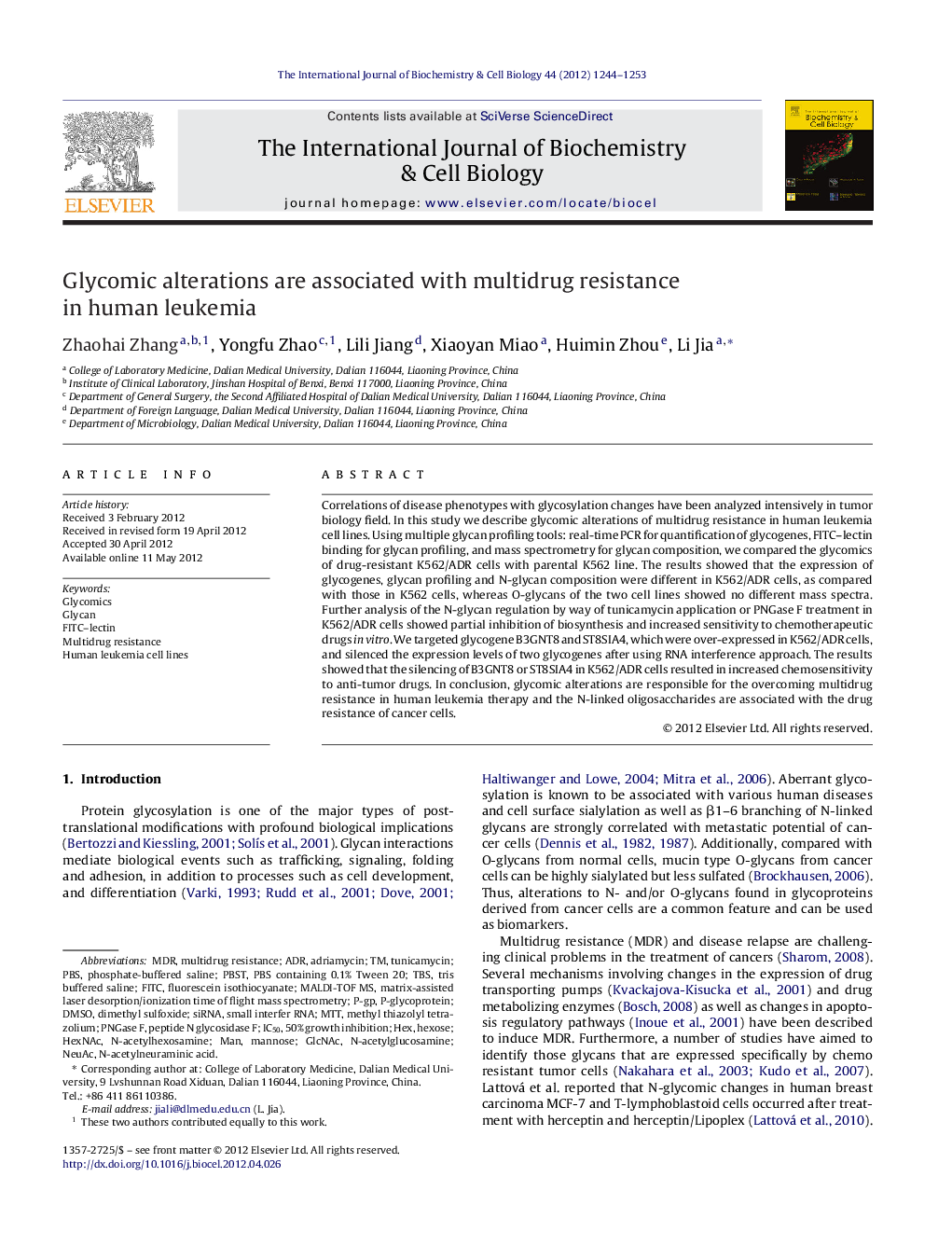| Article ID | Journal | Published Year | Pages | File Type |
|---|---|---|---|---|
| 8324631 | The International Journal of Biochemistry & Cell Biology | 2012 | 10 Pages |
Abstract
Correlations of disease phenotypes with glycosylation changes have been analyzed intensively in tumor biology field. In this study we describe glycomic alterations of multidrug resistance in human leukemia cell lines. Using multiple glycan profiling tools: real-time PCR for quantification of glycogenes, FITC-lectin binding for glycan profiling, and mass spectrometry for glycan composition, we compared the glycomics of drug-resistant K562/ADR cells with parental K562 line. The results showed that the expression of glycogenes, glycan profiling and N-glycan composition were different in K562/ADR cells, as compared with those in K562 cells, whereas O-glycans of the two cell lines showed no different mass spectra. Further analysis of the N-glycan regulation by way of tunicamycin application or PNGase F treatment in K562/ADR cells showed partial inhibition of biosynthesis and increased sensitivity to chemotherapeutic drugs in vitro. We targeted glycogene B3GNT8 and ST8SIA4, which were over-expressed in K562/ADR cells, and silenced the expression levels of two glycogenes after using RNA interference approach. The results showed that the silencing of B3GNT8 or ST8SIA4 in K562/ADR cells resulted in increased chemosensitivity to anti-tumor drugs. In conclusion, glycomic alterations are responsible for the overcoming multidrug resistance in human leukemia therapy and the N-linked oligosaccharides are associated with the drug resistance of cancer cells.
Keywords
PBSHexNAcHuman leukemia cell linesNeuAcPNGase FtunicamycinP-gpADRPBSTTBSFITCGlcNAcIC50MDRDMSOMTTN-acetylhexosamineP-glycoproteinPBS containing 0.1% Tween 20siRNAAdriamycinN-acetylneuraminic acidTris buffered salineDimethyl sulfoxidefluorescein isothiocyanateMALDI-TOF MSMannosemethyl thiazolyl tetrazoliumPhosphate-buffered salineMatrix-assisted laser desorption/ionization time of flight mass spectrometryManMultidrug resistanceN-acetylglucosamineHexHexoseGlycanGlycomics
Related Topics
Life Sciences
Biochemistry, Genetics and Molecular Biology
Biochemistry
Authors
Zhaohai Zhang, Yongfu Zhao, Lili Jiang, Xiaoyan Miao, Huimin Zhou, Li Jia,
